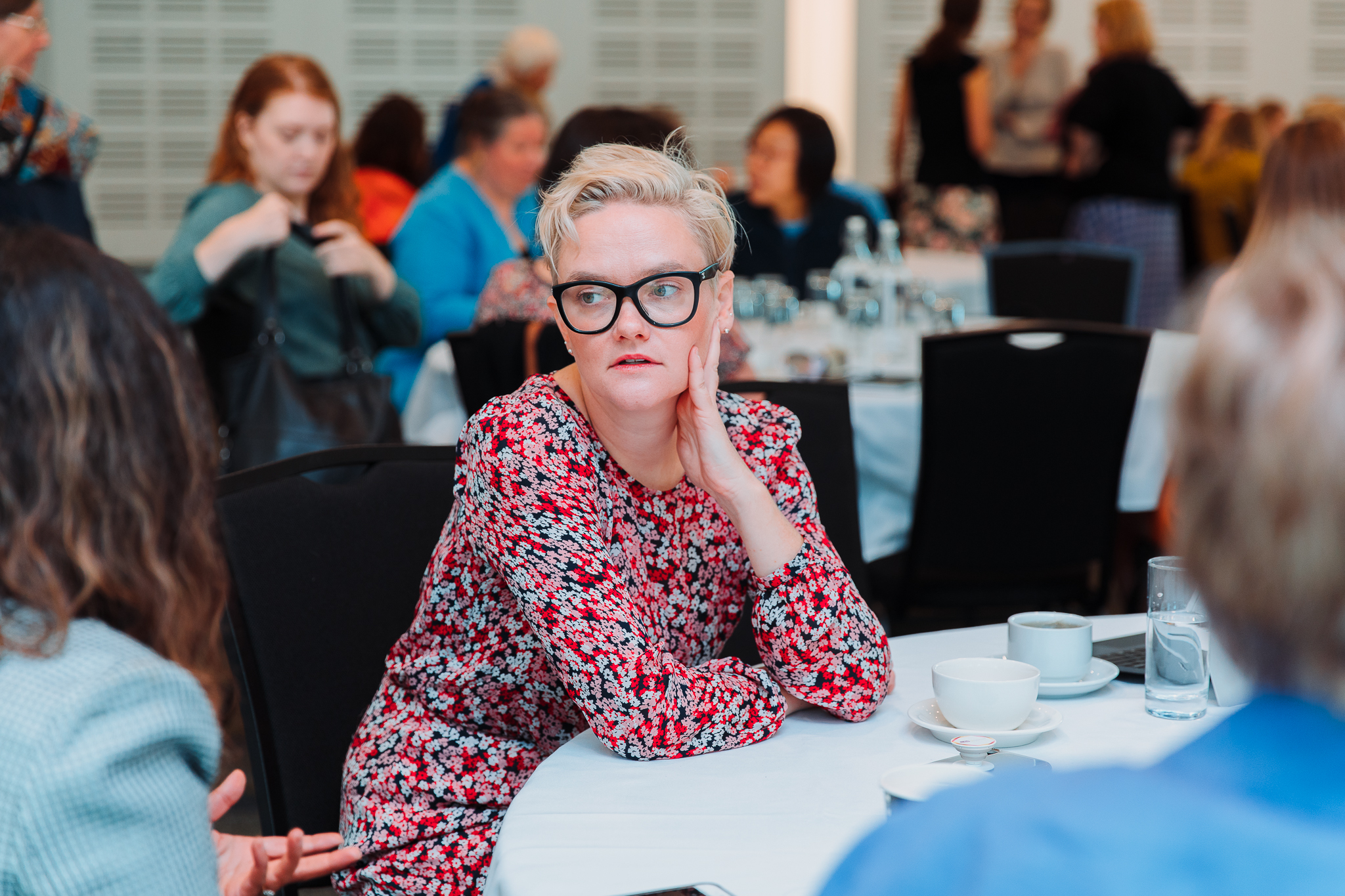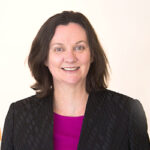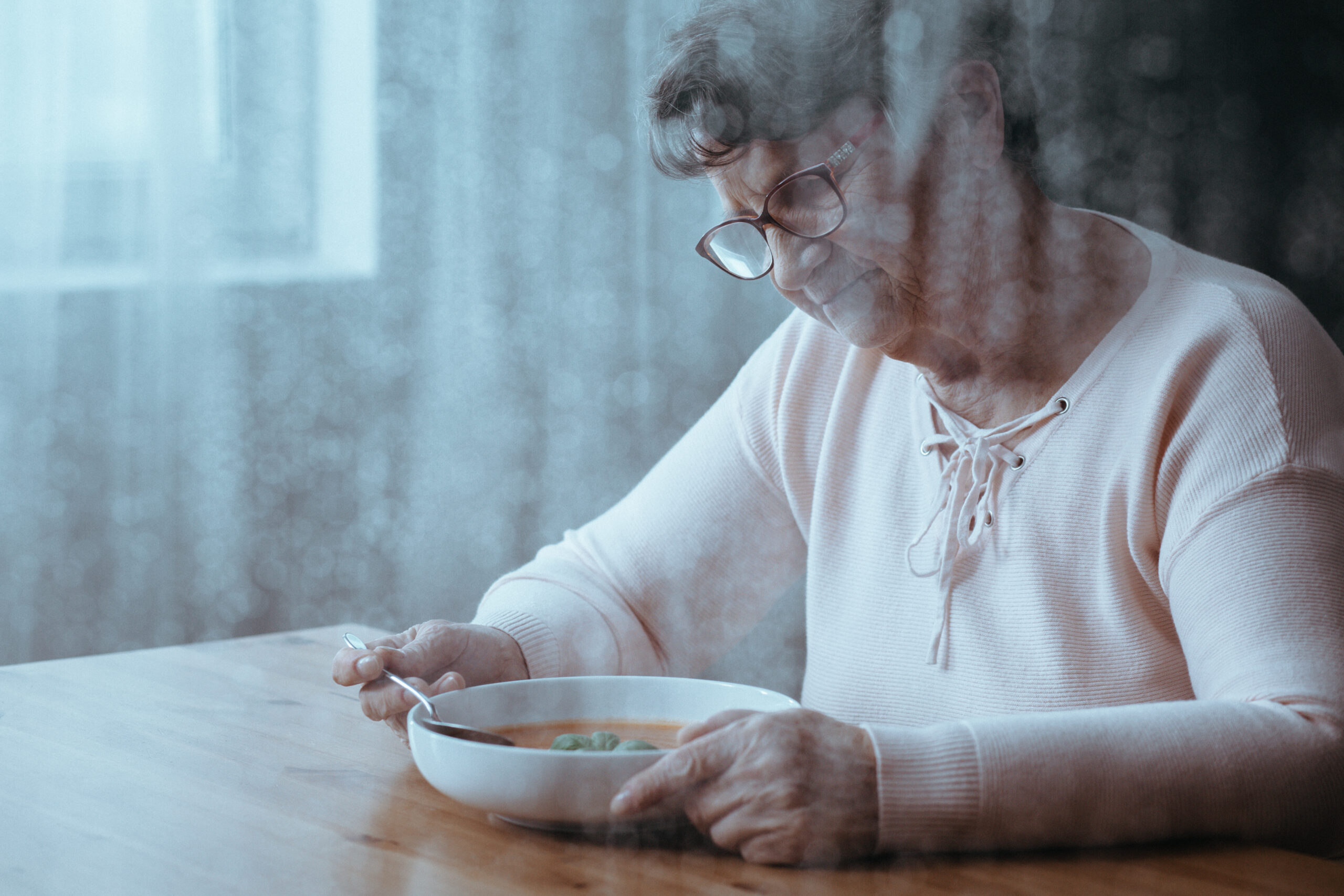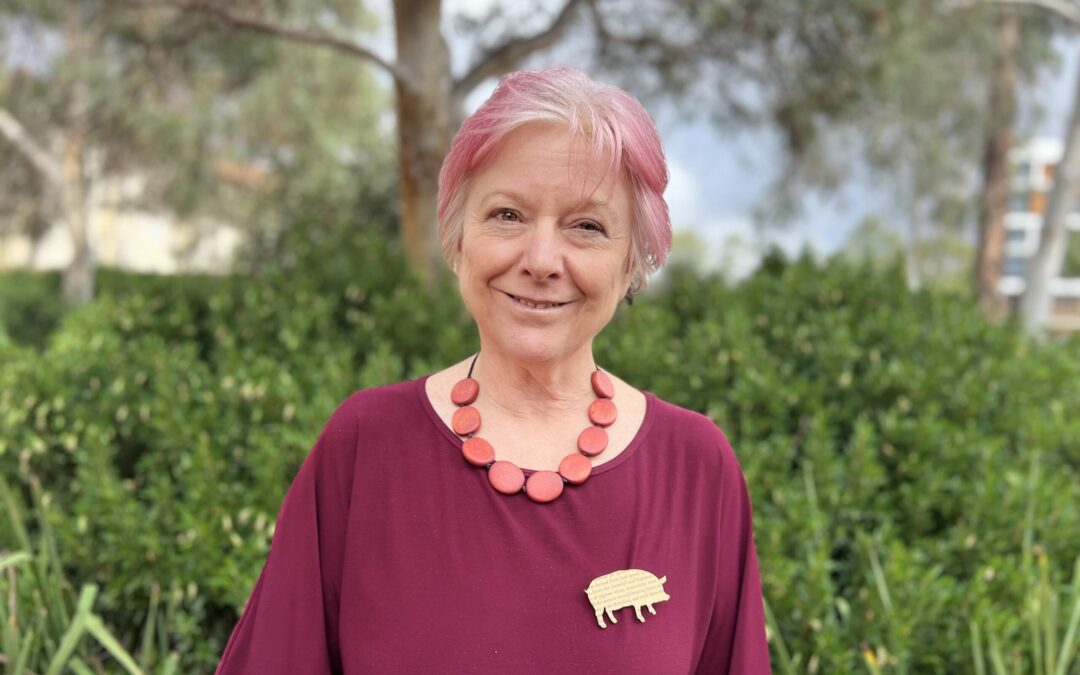My first CSW meeting was in 2002 and I was blown away as, upstairs in the Security Council, governments of the world were debating whether America should be given an imprimatur to invade Iraq following the devastating Twin Towers assault. The US was at loggerheads with Russia, China and many Muslim nations. Downstairs in the 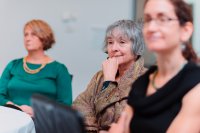 basement, where CSW was held (a position that wasn’t lost on many of us attending!), we were fighting equally hard to reach agreement but with very different geo-political dimensions. Here, the US was joining with religious and gender-conservative states including Russia, many Muslim-majority nations and the Holy See to wind back commitments to equality. As a CSW novice, the lesson on the global complexities of gender equality was clear to me.
basement, where CSW was held (a position that wasn’t lost on many of us attending!), we were fighting equally hard to reach agreement but with very different geo-political dimensions. Here, the US was joining with religious and gender-conservative states including Russia, many Muslim-majority nations and the Holy See to wind back commitments to equality. As a CSW novice, the lesson on the global complexities of gender equality was clear to me.
Since then I have attended many CSW meetings. As we emerge, blinking and exhausted, into the weak March  New York morning after an all-night negotiation that seemed, at the time, like life and death, I wonder what was the point of that tumultuous evening? Would it change the life of even one woman? Or were we just part of a global elite playing language games?
New York morning after an all-night negotiation that seemed, at the time, like life and death, I wonder what was the point of that tumultuous evening? Would it change the life of even one woman? Or were we just part of a global elite playing language games?
But then I would remember the times poor women around the world had told me of the way their lives changed when they first heard they had human rights as women. I’d remember the committed women working in under-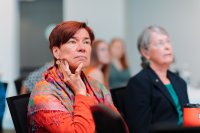 funded non-government organisations, dedicated to bringing that understanding to women and girls, to bringing structural change and new opportunities for poor women so they could transform their own lives. And I would remind myself, then, that the words governments agreed each year at CSW did have the potential to contribute to creating opportunities for these women. It is important.
funded non-government organisations, dedicated to bringing that understanding to women and girls, to bringing structural change and new opportunities for poor women so they could transform their own lives. And I would remind myself, then, that the words governments agreed each year at CSW did have the potential to contribute to creating opportunities for these women. It is important.
This year, momentously, the forums and non-government events were cancelled – because of fears around COVID-19. A short, agreed statement was negotiated, but no experts from the world’s capitals could fly in to help negotiate, no activists and advocates were there to provide insight and pressure.
Quick thinking by the University of Canberra’s 50/50 by 2030 Foundation saw many of those who would have 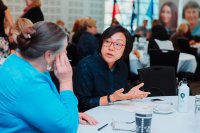 travelled to New York instead convene in Canberra for a day-long, mini-Australian CSW. It was a perfectly formed microcosm of CSW.
travelled to New York instead convene in Canberra for a day-long, mini-Australian CSW. It was a perfectly formed microcosm of CSW.
We agreed that gender equality is at a dangerous crossroads globally right now. We are beyond the usual backlash that advances towards equality always face; we are seeing a resurgence of authoritarianism and male supremacy. 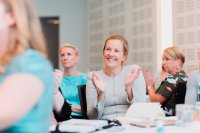 In some countries this is an explicit policy, in others it is embodied in the highest leadership. It is reflected in the increasing difficulty in retaining agreed language about rights in CSW and other UN documents; in the vicious social media violence that women and equality activists face; in the global de-funding of women’s organisations.
In some countries this is an explicit policy, in others it is embodied in the highest leadership. It is reflected in the increasing difficulty in retaining agreed language about rights in CSW and other UN documents; in the vicious social media violence that women and equality activists face; in the global de-funding of women’s organisations.
We recognised that gender equality is essential in addressing all the existential challenges we face as a globe – from COVID-19 to climate change to world poverty and war. But experience tells us that gender equality will be traded off in the face of these crises. And we mourned the short sightedness of our world’s leaders as they do so.
We also know that there were no halcyon days for gender equality. It has been a slog every step of the way.
But we also know that there were no halcyon days for gender equality. It has been a slog every step of the way. So together, at Seize the CSW Moment, we recommitted to our work to advance equality.
We recognised the private sector is demonstrating its potential to contribute to equality, and real advances are being made. Libby Lyons, Director of the Workplace Gender Equality Agency, shared with us the results of the reporting regime for larger employers in Australia. This agency is unique globally and demonstrates that we measure what we value; and we value what we measure.
As Juliana Nkrumah of Settlement Services International pointed out, 25 years since the Fourth World Conference on Women in Beijing, we have only made baby steps.
 Gender equality, though, is everybody’s business. She asked us to remember the theme for International Women’sDay a couple of years ago: “Leave No One Behind”. She reminded us that we assume a level playing ground for Australian women, but women of culturally and linguistically diverse backgrounds too often must raise the alert that they are being left behind.
Gender equality, though, is everybody’s business. She asked us to remember the theme for International Women’sDay a couple of years ago: “Leave No One Behind”. She reminded us that we assume a level playing ground for Australian women, but women of culturally and linguistically diverse backgrounds too often must raise the alert that they are being left behind.
All groups of women must be involved in the work towards equality in Australia and globally. Women should not need to spend energy appealing for inclusion; it is exhausting and unpleasant. The adage “Think Globally, Act Locally” needs to continue to be a guiding principle influencing the development of domestic policies. And globally we should draw on our cultural diversity, bringing our diasporic relationships to our international, development and diplomatic work. Our diversity is our strength.
We must renew old ideas and devise new directions for equality. Trish Bergin, the Co-Director of the 50/50 Foundation, recalled the unfinished business of ensuring our government policies and budgets properly integrate 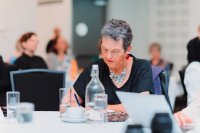 gender equality considerations and can be part of the solution to inequality. Australia invented gender responsive budgeting in the 1980s, but we have fallen far behind in our ability to analyse policies and spending with a gender lens. And we are nowhere near including unpaid work on our national accounts, which would shed light on the contribution that women make to our communities and economy. We need to renew our skills and find new ways of advancing this work. And think of new ideas for advancing women’s leadership – for example, as Professor Kim Rubenstein, Co-Director of the 50/50 by 2030 Foundation suggests, having a zippered leadership system to ensure women and men have equal leadership opportunities.
gender equality considerations and can be part of the solution to inequality. Australia invented gender responsive budgeting in the 1980s, but we have fallen far behind in our ability to analyse policies and spending with a gender lens. And we are nowhere near including unpaid work on our national accounts, which would shed light on the contribution that women make to our communities and economy. We need to renew our skills and find new ways of advancing this work. And think of new ideas for advancing women’s leadership – for example, as Professor Kim Rubenstein, Co-Director of the 50/50 by 2030 Foundation suggests, having a zippered leadership system to ensure women and men have equal leadership opportunities.
We recognised, as feminists, that gender inequality is about power. Our task is to restructure those power relations for the common good.
We recognised, as feminists, that gender inequality is about power. Our task is to restructure those power relations for the common good. We need to work together as trusted partners and in coalitions towards our agreed ends. Elizabeth Broderick, the UN Special Mandate Holder and Independent Expert on Discrimination against Women, called on us all to renew our commitment to equality, recognising that the stakes are particularly high and we face tremendous backlash.
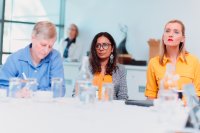 We recognised, as always, that gender equality is personal. We need to live supportive relations and shared power arrangements. We need to enact the change we want to see. And we all recognised that culture is key – from raising our boys and girls with equality in their hearts, to ensuring that our workplaces muster the data and build recruitment, retention and promotion practices that will deliver real change.
We recognised, as always, that gender equality is personal. We need to live supportive relations and shared power arrangements. We need to enact the change we want to see. And we all recognised that culture is key – from raising our boys and girls with equality in their hearts, to ensuring that our workplaces muster the data and build recruitment, retention and promotion practices that will deliver real change.
Professor Lisa Kewley Laureate ARC Fellow at ANU, had us all spellbound with her practical prescriptions for ensuring astronomy is gender balanced within 10 years – we just have to do it! We need to hold our leaders to account for equality and expect more of the men in our lives in sharing the load of unpaid work.
And as the inspiring panel of young women, Yasmin Poole, Sophia Hamblin Wang and Caitlin Figueiredo, noted, we need to know our value and claim our space; and continue to have courage for the road ahead.
Sally Moyle is an Honorary Associate Professor at the ANU Gender Institute and Natasha de Silva is the Principal of Intersection. They are part of the team that conducted the research for Unlocking Leadership: Conversations on Gender and Race in Corporate Australia.
